Black Ball
Mario Bellatin
translated by Andrea Rosenberg
1- BLACK BALL RELOADED
Author’s first look at the bande dessinée Black Ball
Yesterday I received some information about the Czech writer Bohumil Hrabal. I replied that toward the end of his life he’d seemed unable to bear the too loud a solitude in which he lived. So he’d climbed out onto a window ledge on an upper floor of the nursing home they’d put him in and leaped into the void. The response I received said that during his last years he’d been obsessed with the bustling pigeons he could see through the windows of the ward as he lay in bed. Maybe he wanted to turn into a bird, said the message. Maybe that’s why he’d attempted to fly, as if he were one of them. The person writing to me was my psychoanalyst. I’d had countless sessions with her a few years back. I remember I paid for the therapy not with money but with pieces of writing. Indeed, my lack of money was the very symptom that had brought me to her in the first place. My complete inability to pay for goods or services. Perhaps because of who my correspondent was, I started thinking about pigeons after that. Wasn’t it actually possible instead that they’d annoyed Hrabal so much that he was eventually driven to suicide? Couldn’t it have been because of their constant cooing that he’d come up with that phrase too loud a solitude, which appeared so often in his writing? Today my dogs killed a pigeon. In the park two blocks from my house, a wide pool had formed after last night’s heavy rains. People were lingering beside the water, next to a woman who sells breakfast from a cart in the mornings. A few pigeons were eating scraps that the people were tossing them. I’d left the house with my dogs just a few moments before. When I got to that area, Isaías and Manga caught one of the birds and fatally injured it, then left it floating in the pool. The people breakfasting protested loudly. I fled. When I saw what was happening, after a few meters I turned back. The dogs followed me. As we walked, they kept looking toward their fallen prey. They probably wanted to keep tearing at it. Or maybe bring it to me like an offering, a trophy. I heard someone yelling behind me, ordering me to pick up the dead bird and put it on a tree branch. It seemed like an odd request. Maybe the person believed it was more dignified for a pigeon to die on a tree branch than in a murky pool. I thought about the increasingly complicated relationship between men and animals. About current modes of thought. About the obligations we face these days. About norms that just a few years ago would have struck us as ludicrous. For example, adopting animals instead of buying them. Neutering males and females alike. Abandoning the custom of pointlessly mutilating them or giving them haircuts to meet obsolete standards of animal beauty. I also thought about the insects all around us. About how damaging they generally are, except for the ones we eat. I just now traded the books I’m currently working on for a bunch of giant ants. I also thought about the rats I sometimes hear under the floor of my study. I received another call today, too. In it, they informed me that the dog I’d given to my editor eight years earlier had just died from biting a poisonous toad. My editor is heartbroken. She’d taken the dog out to her country house, where the accident occurred. There’s no antidote for that kind of poison. When my editor calls, she’s in the waiting room of a pet crematorium. I haven’t yet gone out to walk the dogs. After the incident in the park, I return home. The dogs are all worked up. I’m not sure whether it’s because of the pigeon or because they haven’t gotten a full walk. Perezvón and Manga and Isaías and Abelardo keep circling endlessly around me. I ignore them, thinking I’ll take them out again at midmorning, and then settle in my study and open the book Black Ball, a project the artist Liniers has been working on. I admire its green cover. The ball—yes, black—in the center. The green that fills most of the space looks synthetic. I don’t think of nature at all when I look at it. Somehow it seems like the right green for the kind of trance experienced when diving into a book like Black Ball. The ideal green for, among other things, describing the artificiality of a half-wild pigeon hunt in a pool formed after a nighttime rain. The leaves of the tree where the breakfasters asked me to place the bird’s battered body must be that color. And it is, no doubt, the hue of that poisonous toad. From what she told me, my editor’s dog was carrying the toad’s corpse in its jaws. The black ball reminds me of a bowling ball. Of an iron ball chained to prisoners on death row in the United States. It could also represent the interior of the universe. I’m one of the few people who knows it’s a sort of food bolus. The same kind that both the insect discovered in the jungles of Africa and described in the text and the entomologist who found it turned into. For the moment, though, I try to pretend I don’t know what it’s from. When I turn the page, I realize it’s actually the ball from which my most terrible nightmares emerge. There I am, standing behind a lectern on a stage. One of my arms is missing. There seems to be a sizable audience in the auditorium-like space. I become aware once more that I’m missing an arm. I’m surprised by it. In the first scene of the book Black Ball by Liniers, we see the writer Mario Bellatin without his right arm. The void where it would have been is rigid and empty. It’s very strange to see him that way. Without his right arm. Could he have left it backstage? Is it some sort of joke he’s playing on his audience? His head is bald as usual, setting off perfectly the cut of the clergy shirt he wears when he’s not in a black tunic. I’m nervous. It is becoming reality, the worst thing that could befall that kind of writer. I don’t think he can stand up there and face an auditorium without his arm. But the awful scene is already set down in Black Ball. Mario Bellatin remembers how in the book Flowers there’s a similar character. Though unlike the one in Black Ball, the character in Flowers finds himself in front of a packed theater, naked and missing a leg. I think in that book, Flowers, it’s a writer who’s having a similar nightmare. A bad dream that began when he suddenly felt as if he were living inside a violet that his mother was growing in a flowerpot. As the dream continues, he is forced to dance naked on his single leg. It’s the opening number, the one that introduces the heroes of the evening. The Kuhn Twins. Two brothers who were found in a basket at the bottom of a ravine. And who were immediately handed over to the city orphanage. A line of women formed, eager to play their mother, and indicated both the type of child with which they hoped to perform their role and the schedule that suited them best. As soon as the little boys arrived, the women fought for temporary custody. One of the twins didn’t have any arms. The other had no legs. Many years later they choreographed a dance that fascinated and frightened everyone who saw it. The twins’ fame spread rapidly. They were so successful that they were even incorporated into the chapter in Flowers that Mario Bellatin was remembering at that moment. I look at the book Black Ball more closely, and then I see my teeth. They appear right at the point in the story when I wind up in front of a microphone and start to read Black Ball out loud. The entomologist Endo Hiroshi decided one morning to stop eating anything that other people might consider sustenance . . .
2- The teeth don’t look like that anymore. Here they are spaced apart, prominent, demonic. Now they’re worse. They were filed down two days ago and are now jagged and yellow. They’ve become the teeth of an old man. On Monday the dentist convinced me he could fix the ones I’ve had since childhood, employing a number of strategies to obtain my consent. Most persuasive was when he suggested how embarrassed I must be to appear in press photos with such gapping, quadrangular teeth, like the ones Liniers drew in the book Black Ball. I’m not sure how the dentist heard of that book. Nor do I know how he has become familiar with the images it contains. I wonder these things primarily because the book has not yet been published. It disturbs me to think that there are dentists who find about their patients’ teeth that way—even if those teeth are only imagined from hundreds of kilometers away. I have no choice but to accept. The dentist gets to work. He files down the tips. He keeps sharpening them one by one until it seems to me they have become little guts. They become a row of stalactites through which the outside air comes whistling in. An hour later the dentist hands me a little mirror so I can take a look. I’m horrified. I’m gripped by a sensation similar to the one I felt this morning as I watched my dogs killing a pigeon or when I found out that my editor’s dog had just died from a poisonous toad. Maybe it’s the same thing audiences experience at Kuhn Twins performances. Not only have my teeth become sort of individual shards, they have also lost any trace of color. I find myself gazing at utterly lifeless fragments. They are of a shade that is not quite deep black, but dark—dark like the Black Ball on the book’s cover must have been at some point. If the morning’s breakfasters had been present there in the dentist’s office, they would no doubt have urged me to hang the wreckage in my mouth from the branch of some tree. I imagine it hanging there. To be able to appreciate it like that, it would first have to be extracted and made thousands of times larger. Those stalactites I had in place of teeth would have to swell and expand. And become flexible. One of Bellatin’s giant polished teeth would rest upon each branch of the tree, each adapting to the shape of the surface that cradled it. Like those exhausted, drooping clocks we’ve all seen. Holding the little mirror, the dentist looks satisfied with his work. He keeps asking me if it hurts. It’s true. There’s pain. I realize then that the horror I feel comes not just from what I’m seeing reflected in the moon but also from the pain my teeth are causing me. He tells me the effects of the anesthesia are wearing off now. At that moment I realize those sharp pains I felt were the shots he gave me during the process. He adds that I shouldn’t worry. He tells me I can’t go out on the street like that. He claims he’s got everything ready. He’s going to put on some veneers that will function as temporary false teeth and prescribe some painkillers. In the end he does what he’s promised. For a few interminable moments, he leaves me alone. Then he goes to work inside my mouth. Coming and going. Prodding my jaws open and shut. Making molds of my teeth. When he finishes, I look at myself in the mirror again and see other teeth. Not like the lugubrious gappy teeth in Liniers’s Black Ball. Which we see right when I mention the existence of the entomologist Endo Hiroshi. But not like the pointy, blackened teeth I saw a few minutes ago, either. Bellatin has some strange teeth now. They’re not the ones he had with him this morning. The dentist adds that they’re not the ones he’ll be keeping, either. The teeth in Bellatin’s mouth will be his for only three days. This very Friday they’ll be switched out for permanent ones. I’m alarmed to think what might happen after Friday to the initial image of the author’s mouth that appears in Liniers’s book Black Ball. What can I do to show that Bellatin’s teeth are no longer Bellatin’s teeth? It’s not even just a simple matter of having dentures—which are really the same teeth. Thus, Bellatin is denied not just the option of removing his arm and leaving it backstage but also the option of removing his teeth and leaving them to slumber in a glass of water that some distracted houseguest will probably gulp down in the middle of the night. As he leaves, Bellatin discovers he’s spent eight hours sitting in that dentist’s chair. He finds it quite extraordinary to have put himself through such a thing and allowed himself to be manipulated in such a manner just because the dentist has seen his teeth in Liniers’s book Black Ball. For Bellatin, the day is already over. He has no desire to do anything in the hours that remain. He heads out into the street, and in the chill of the wind he feels a sharp pain. He also feels like the temporary teeth he’s got aren’t attached securely. He has to twist his mouth a certain way to keep them from falling out. At that moment he would have liked to belong to the Caravan of Toothless Souls that appears in the book Black Ball. To be one of those unlucky creatures who, when they feel their last tooth fall out, know that they must depart toward death. As a child, Bellatin heard that story over and over again. His grandmother told it to him. For her part, she had heard it from the mother of a Japanese family that moved in next door, fleeing one of the waves of famine that were always engulfing the Orient. His grandmother told Bellatin that the story of her neighbor’s life hadn’t seemed to end that way at all. She wasn’t convinced that her neighbor had been forced to make a decision after discovering that she had lost the last of her teeth. According to his grandmother, the story of the Caravan of Toothless Souls came to a close the night government forces rounded up Japanese immigrants to ship them off to concentration camps in the United States. The neighbor and her husband committed suicide that very night. My grandmother told me that they’d asked her to look after their young children just a few hours before. The little boy was very fat and the little girl very skinny. She also told me that an hour later they heard a gunshot, and then another. The husband first killed his wife and then committed suicide. The neighbor had asked her to hide the children well. The fat one and the skinny one. To care for them as if they were her own. But my grandfather turned the children over to the police shortly after the shots rang out. I think it was partly by way of excusing him that my grandmother sometimes told me how hard times were back then. That I shouldn’t condemn my grandfather’s actions or those of the rest of my family. I think it is because of their actions that I understand all the better Bohumil Hrabal as he clambered out on that ledge, saying he was going to scare off the pigeons. They say that his fall was deafening. That he showed not a trace of the elegance with which a bird executes its final flight. Actually, birds die huddled in some remote corner of nature. I remember seeing some of them dying on the southern beaches. I used to think, when I was a boy, that the seagulls that could no longer fly were staying still because they’d decided to make friends with human beings. As soon as I spotted them, I’d chase after them. I tried to feed them. I didn’t notice that many of them were hobbling. Others stayed still, allowing my hand to stroke them. Hours later I’d find them dead. They’d lie there motionless, staring into nothing. They wouldn’t eat even a crumb of bread. They seemed to be atavistically rejecting anything other people might consider sustenance. Just like Endo Hiroshi, who declared one morning that he was going to stop eating anything other people might consider sustenance. Then Mario Bellatin put his hand on the sheet of paper resting on the lectern where he was reading Black Ball aloud. An enormous fly appeared in front of the microphone. A fly like the ones that buzz around corpses when they start decomposing. Like those that certainly had circled the corpse of the pigeon placed on a tree branch by the breakfasters who’d watched in horror as my dog Isaías broke its neck in an instant. Or looped above the violets that the mother of the legless writer was growing in a flowerpot. I was even more terrified of the fly than I was of standing armless in front of an audience to read the text of Black Ball. A text in which an entomologist suddenly decides to stop eating anything other people might consider sustenance.
3- The entomologist Endo Hiroshi decided one morning to stop eating anything other people might consider sustenance. He made the decision after a night of insomnia—brought on, perhaps, by the memory of the household’s old cook leaving for the Caravan of Toothless Souls after his parents’ wedding reception.1 All that night he had felt, as he hovered between sleep and wakefulness, his arms and legs disappearing, consumed by the unrestrained voracity of his own stomach.
That organ was so aggressive, in fact, that in the first light of dawn Endo Hiroshi already felt like one of those people who eats only to destroy it. Who try to turn it into a near-useless appendage. Endo Hiroshi had seen them up close and personal, young people who died stick-thin because they’d suddenly refused to eat even a grain of rice. Some said that many of those vanishing appetites had been wiped out by a romantic disappointment of some sort, and others that they were the result of a slavish adherence to Western fashions. On the other hand, he also knew of men and women who stuffed themselves with food, their fleshy bodies in the grip of their uncurbed desire to represent the whole universe within themselves.2 Both situations had occurred at one time or another in his own family. There had even been twin cousins, a girl and a boy, the former of whom had succumbed to anorexia while the latter became a champion sumo wrestler.3 Endo Hiroshi also remembered stories from the war years that he’d heard as a boy, stories of a scarcity so dire that people had killed each other for a scoop of rice or a piece of fish.4 He’d also heard tales of elegant sushi made with rodent meat, and of children who caught flies and ate them like millet.5 It seems that the effect of these stories was that the entomologist Endo Hiroshi had acquired, from a very young age, a sort of mingled revulsion and reverence toward food. That’s why he never really agreed with that foreign saying that his country’s food seemed to be made more for visual appreciation than for eating.6 In his grandparents’ house, where he spent a good portion of his childhood because his parents were not allowed to live together as long as the cook was still alive, they never let anything edible go to waste. Often—based mainly on the teachings of the prophet Magetsu, of whom the whole family were devotees—they had engaged in a peculiar way of preparing food, which involved burying the ingredients for several hours among stones heated with wood or charcoal. The prophet Magetsu, a monk who is said to have died not once but many times, conceived of the creation of the universe as an offering from mother earth to the universe’s constituent elements, which of course include humankind. Once when he was invited on a long trip to Africa by his entomologists association, Endo Hiroshi had to eat all sorts of packaged foods, which he bought in a shop near his house recommended by the organization’s members. He made that trip with his suitcases loaded with plastic jars and boxes containing different types of dehydrated foodstuffs. Endo Hiroshi just had to add boiling water to the containers to achieve a sort of food that at least vaguely resembled that originally consumed in his country. The entomologist Endo Hiroshi himself dubbed that trip “the long journey of boiling water” because teapots and hotplates were so essential en route, allowing him not just to eat but also to drink tea in the traditional manner. Endo Hiroshi could have easily gone without food for several days, but it was practically impossible for him to give up drinking tea for more than four hours at a time. A few entomologists advised him to take advantage of the trip and sample one of the many edible insects incorporated into the diets of the regions they were visiting. Everything from your everyday ants, which were coated in honey and served in a paper cone, to the flesh of a species of blue-legged tarantula that lives only in the crown of certain trees.7 As they ate these specimens, the members of the expedition often talked about insects’ nutritional properties. Some years back, led by the scientist Olaf Zumfelde from the University of Heidelberg, a number of experts had drawn up a table showing the quantity of protein from invertebrates that was absorbed immediately by the human body.8 And yet Endo Hiroshi ate nothing but the prepackaged food he’d bought back home. He continued his journey with his dehydrated foods, his tea, his teapot, and his little battery-operated hotplate at his side. He was working with his usual diligence, only a few days from the end of the trip, when he found a strange specimen that had been thought extinct. A theretofore unknown subspecies. The only one on record, the Newton camelus eleoptirus, was a different color. He stored it in the best conditions he could and, without mentioning it to the rest of the expedition, carried it back with him on the return home. Once he’d disembarked, he headed straight for the lab he’d set up in the rear of what would later become his parents’ house.9 At the time, his parents were still unmarried and lived apart. Nevertheless, the family members came together every night in that house, where Hiroshi had lived since childhood, to recite the prayers of the monk Magetsu. Endo Hiroshi knew that his find would be the making of his career as an entomologist. His name, Hiroshi, would forevermore be used to refer to the species he’d captured. The insect already identified had been blue, not red like the one Hiroshi had found. The new subspecies would bear the name Hiroshi camelus eleoptirus. But to his surprise, when he opened the plastic box he found only a tiny black ball instead of his insect. The ball was so miniscule, it was strange that he could make it out at all. The box had been specially designed to transport specimens of this sort—that is, small and medium-sized insects. They were made exclusively for the members of his entomologists association and were constructed in such a way that the insects could live inside them a long time. The eleopter he’d found last week couldn’t possibly have escaped. Endo Hiroshi had seen it in the Nairobi airport before he’d boarded his return flight. He’d taken another peek on the plane, and just yesterday, as soon as he was home again, he’d gazed at it for a long time through entomology glasses.10 On that last occasion, he’d been comparing it not just to the Newton camelus eleoptirus that appeared in an illustration in an insect book he always carried with him but also to a number of specialized tomes that filled his library. He was so startled by the absence that he didn’t notice the arrival of his parents, ready to resume prayers in the living room now that their son was home safe and sound. For the weeks he’d been away in Africa, they’d had no choice but to pray in the temple of the Prophet, which perched on the slopes of the highest mountain. It was an exhausting climb to get there, but they had no other option. The parents were not just forbidden to live together before the cook’s death would allow them to marry, they were unable to be in the main house for even a minute without their son’s physical presence. Hiroshi heard them call to him—they wanted to say hello, of course, but more importantly they wanted to begin the religious rites, which they could not perform without him. Just then Shikibu, the old servant, finished preparing a large pot of white rice that would be passed around after the ceremony. Ever since he’d turned fifteen, the bowl of rice served after prayer was the only food that Endo Hiroshi ate all day. Rice and, as mentioned earlier, several liters of tea. Anyone would have predicted that such a diet would make him grow thin and weak. But his vitality proved otherwise. Just as it had been for the old monks, even the prophet Magetsu himself, a bowl of rice a day was enough food for a lifetime. On a related note, it is said that one of the prophet Magetsu’s deaths—to all appearances the definitive one—occurred when the Prophet decided to allow his body to feed off his body.11 To bear witness to the process, during which his flesh gradually disappeared, curiously transformed into the traces of his own flesh, he relied on his disciple, Oshiro, who wrote on a large rice paper scroll, still available to anyone who wishes to consult it, the words dictated to him by his master during the process. Curiously, the final word could be translated as “peace.” It seems strange that a being as spiritually advanced as the prophet Magetsu, having carried out such a complex process of dying, would utter a word whose meaning for many people would seem quite obvious. Before beginning the ritual of devotion to the Prophet, Endo Hiroshi and his parents had to check the teeth of the wizened cook. His parents were always more interested in that inspection than he was, as they would only be able to marry and live together when the woman had lost all of her teeth. The day that she could no longer eat, the cook would starve to death on her lonely journey—an endless road that would start at one of the many roads encircling the highest mountain—which she would be forced to begin the night the man and woman of the house were finally married. The moment a dental inspection revealed the total absence of teeth, the preparations for the wedding would begin. Two days later, it would all be over. Man and woman would now be husband and wife. During those two days, the old woman would not be allowed to eat even a crumb from the wedding banquet, ensuring that on her journey toward death, things would proceed as quickly as possible. A few minutes later, after the usual greetings and paying their respects to the image of the prophet Magetsu, the inspection of the cook’s teeth began. It was not yet time to begin the prayers: in order to achieve the proper intonation, it was important to know whether or not the cook still had teeth. On this occasion, though he carried it out to the letter, Endo Hiroshi paid no attention to the ritual he was leading. He was baffled by the insect’s disappearance. Nevertheless, a loyal devotee, he hid it as well as he could. He’d put on his traditional tunic and, after greeting his parents as any son recently returned from a long journey should, he started sprinkling the water—which he scooped out of a small wooden bowl—over their prone bodies. After the greetings, his parents had stretched out face-down on the floor. Once that part of the ritual was over, they noticed the cook was gone. The parents sensed it immediately, in fact. The raced to the kitchen, where they found the old woman hiding behind the firewood for the stove. As they’d guessed, when they pried open her mouth they discovered that the last molar, which had had them on tenterhooks for the last few years, had vanished. The old servant pleaded, refusing to open her jaws again. Endo Hiroshi, who had followed his parents to the kitchen, suddenly understood what had happened to his insect. He realized that the tiny ball he’d found in place of the exotic specimen was a sort of stomach of the insect. Actually, it looked like the bug had simply swallowed itself. He didn’t find such a theory at all bizarre. It was not for nothing that he’d spent practically his whole life, every free moment his career as an entomologist permitted him, leading the rites of the monk Magetsu. It seemed to have repeated itself, there within his entomologist’s box, that process the monk had undergone before dying for good. That ball must be a formless mass made up of the elements that had composed the little bug. The old woman was emitting heartrending screams.12 His parents would not bend. At last she fell quiet—a sudden silence that seemed to suggest a full acceptance of her fate. His parents could then discuss the wedding plans in peace. They talked mostly about the banquet. They’d serve traditional foods. No modern touches, except the sea bream served to the couple before the ceremony began. They’d have to find a cook skilled enough to prepare the ghost bream,13 the recipe for which consisted of cutting up the fish until it was fleshless but still alive and then placing it in a fish tank in the center of the happy couple’s table. The couple would eat the flesh while the animal kept swimming, dying, its internal organs exposed for all the world to see. As a good omen for the marriage, the meal should last exactly as long as it took the fish to die. That evening, the entomologist Endo Hiroshi confirmed his suspicions. After they’d sentenced Shikibu and performed—with more intensity than usual—the Prophet’s rituals, he went back to his room and with the help of a microscope found that, in fact, the insect appeared to have consumed itself. For no apparent reason, he felt a wave of nausea. He vomited. Meanwhile, downstairs, his parents were still making plans. Not only could his mother now arrange the house as she wished, but she could also paint her teeth black. In addition to starting to give orders around the house, his father now had the right to go to the dentist to have his front teeth removed once and for all. These characteristics—the blackened teeth and the missing front teeth—were symbols of having a full life. Reflecting on the transformation undergone by an insect that might have been called Hiroshi camelus eleoptirus, a name that would have instantly made him famous around the world, he decided that after his parents’ wedding, the end of his own life would consist in reducing as far as possible the normal functioning of his stomach. He would seek to neutralize it in a manner similar to the liver atrophy suffered by those geese that are obsessively overfed by their owners, or by the ducks that in some countries are raised in tiny cages and fed with chemical-soaked corn. When the sun shone in through the window the next day, illuminating the plastic box that still contained the insect’s supposed stomach, Endo Hiroshi decided to eat not only that black ball but also a bunch of weevils and other bugs that he’d collect later that morning. In the armoire in his room, practically brand-new, he still had the outfit he used to wear for the caterpillar hunt that took place every leap year. The last time he’d participated, he’d gone with his cousin, the excessively slender girl who’d died of slenderness, and with his other cousin, the obese sumo wrestler.
*
Notes
1 Archaic custom that must be followed by citizens who have lost all of their teeth.
2 Popular belief, primarily among the Assyrian Chaldeans, that the whole of the celestial spheres is contained within the human body. Thanks to recent psychological studies, it is believed that men retain remnants of this conviction as a symbol of social superiority.
3 Type of martial art that celebrates times of harvest or abundance. It is especially prevalent in regions governed by the solar calendar.
4 The fish that has provoked the greatest number of murders is the sole.
5 Even today newspapers occasionally run stories about merchants who are selling toasted flies instead of edible seeds.
6 See Newsweek magazine, no. 234, p. 56.
7 They were phosphorescent Larpicus tarantulas, found only in eastern Namibia.
8 Consult the Zumfelde Table, available from the Berlin Nutritionists Society.
9 According to the tradition of the prophet Magetsu—which the Western world found incomprehensible—a man and woman were not permitted to marry until the eldest of their female servants had lost the last of her teeth. This prohibition did not impede their right to have children.
10 He used a pair of Stewarson glasses imported by the Tenkei-Maru department store.
11 See the Hiro-Sensei sect’s book of the Holy Catechism.
12 It is said that some of the neighbors were unable to sleep that night.
13 Teachers of this technique tend to be found on the country’s southern coast.
* *
Images: Ben Rodkin, with Mario Bellatin and David Shook, for Baru
Coming soon… the Bellatin dossier from BAR
[ + bar ]
Edipo [buenos aires]
Milton Läufer translated by Heather Cleary
It’s true: Edipo is an ugly bookstore. And yet, though this may seem like a contradiction, its most notable... Read More »
A Love Story
Bernardo Carvalho translated by Max Seawright
1.
He haggles over fish at the wharf. He’s done it since before his tenth birthday. His mother makes him. It’s no accident he... Read More »
Primavera – Fall 2013: Tongue Ties
This first quarterly issue of the Buenos Aires Review boasts new literary works from a variety of tongues—French, Galician, German, Portuguese, Russian, and a touch of Hungarian accompany... Read More »
Bibliothèque nationale de France
Victoria Liendo translated by Victoria Lampard
To Charles Coustille, guilty of making me love France, he who declares himself innocent of everything.
Libraries very much resemble churches: there are some that can... Read More »

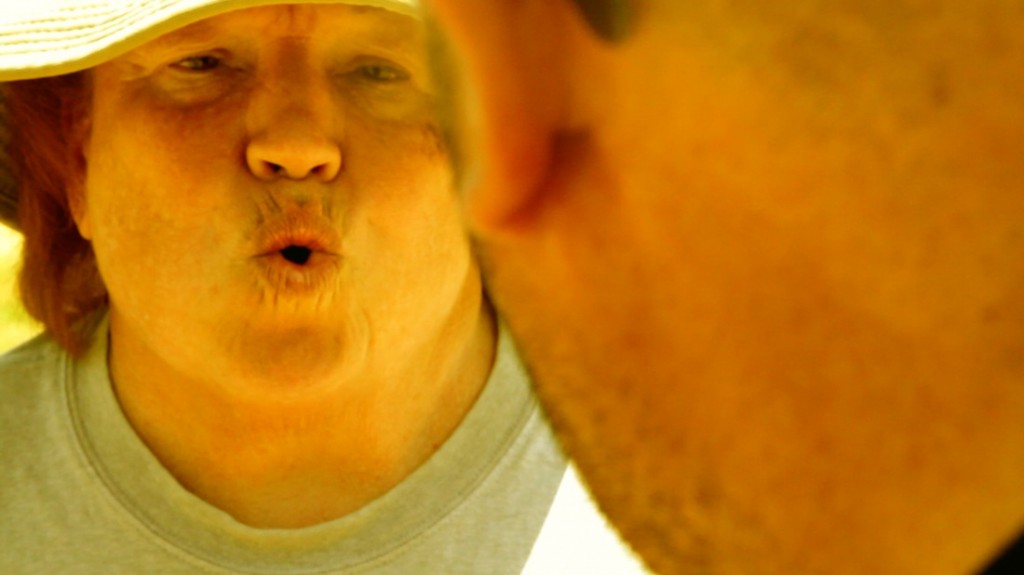
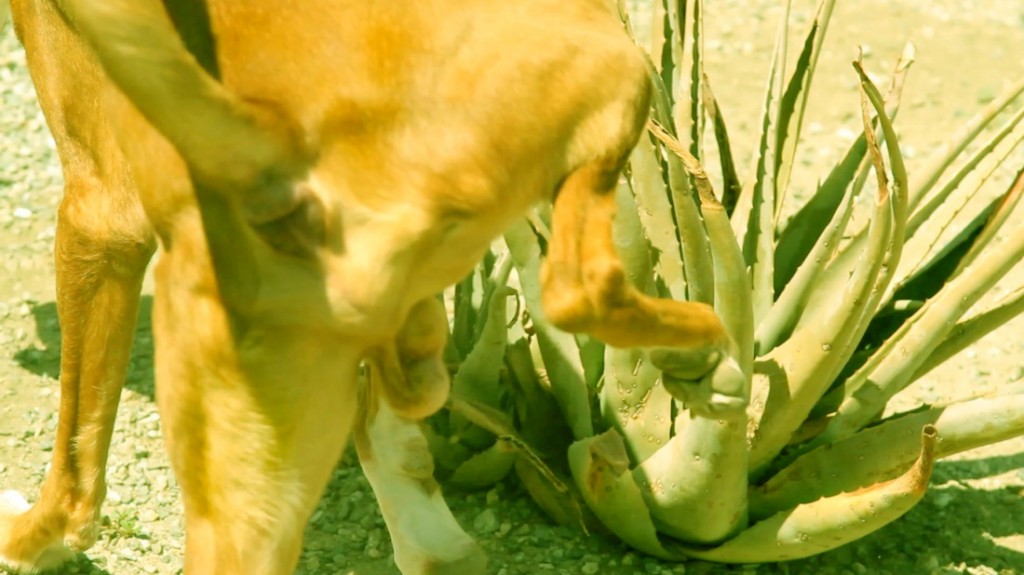
![Edipo [buenos aires]](http://www.buenosairesreview.org/wp-content/uploads/Screen-Shot-2013-04-20-at-11.16.56-PM-700x500.png)
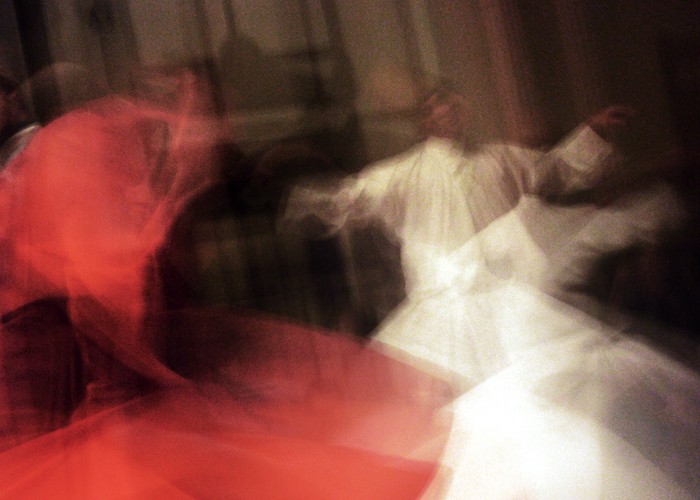
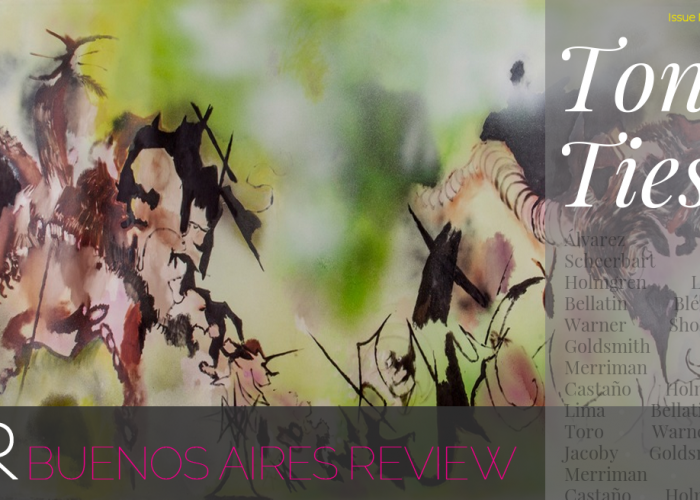
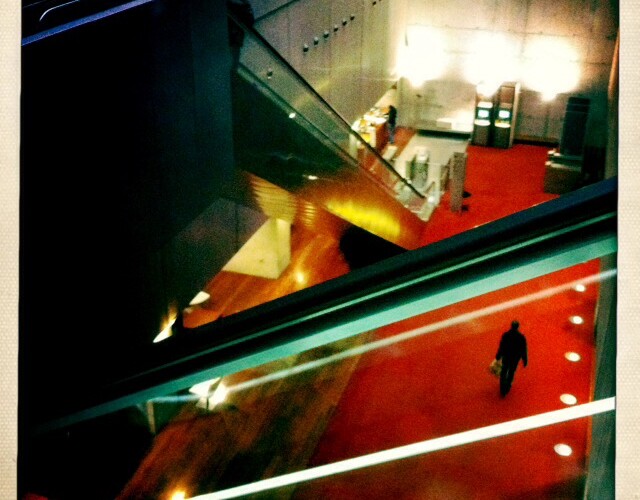



 sending...
sending...